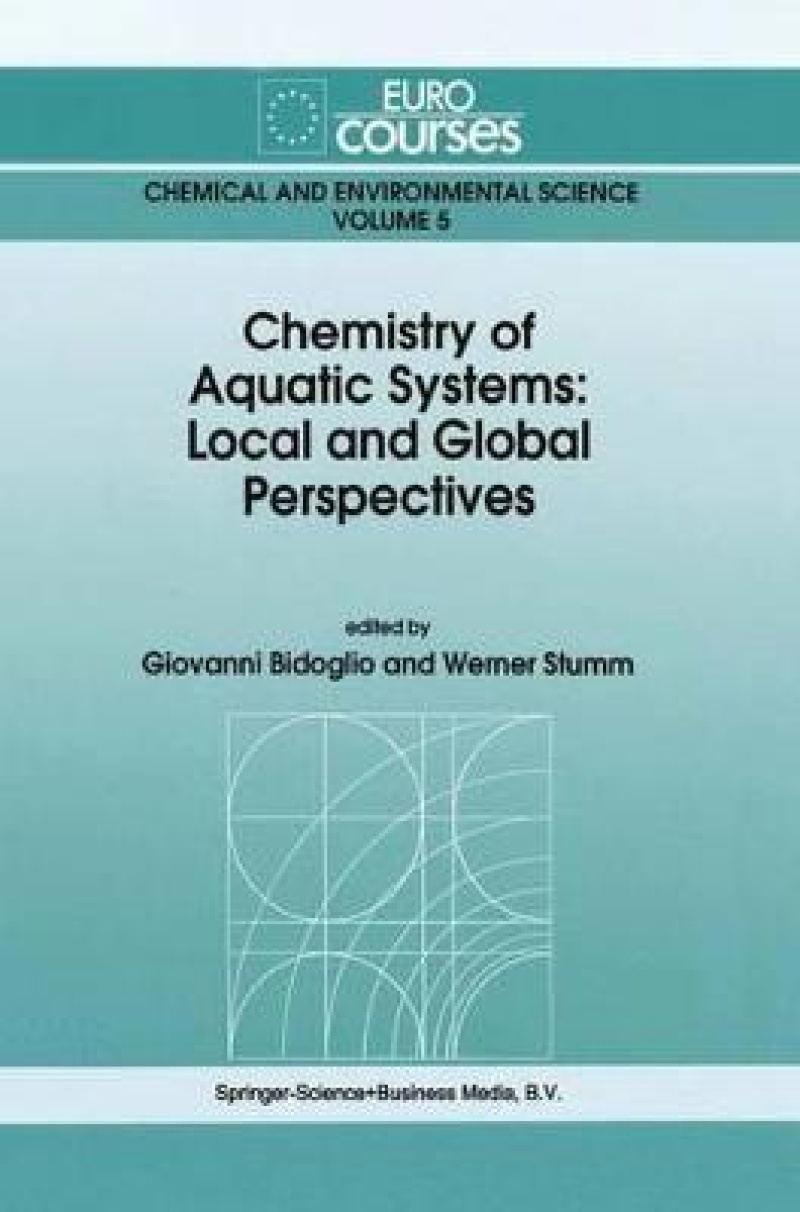Aquatic systems play a salient role in the complex processes of energy and matter exchange between the geosphere and the atmosphere. For example, reactions taking place in cloud water droplets can substantially alter the atmospheric budget and chemistry of trace gases; pollution induced weathering reactions at water/soil interfaces can affect the availability of nutrients and increase the concentration of potentially toxic metals in groundwaters. Moreover, the inextricable links between the water cycle, the geosphere and the atmosphere ensure that apparently localized environmental problems have increasingly impacts in other parts of the world. To identify local-to-global scale variables associated with environmental changes, a focus must be placed on the recognition of processes, rather than a continued reliance on monitoring state variables. However, in heterogeneous aquatic systems, small scale aspects of a process under observation may not be summed directly to obtain regional estimates because of process nonlinearities with change in scale. To understand this, the integrated use of measurements across a range of scales is required.
Les mer
Aquatic systems play a salient role in the complex processes of energy and matter exchange between the geosphere and the atmosphere. However, in heterogeneous aquatic systems, small scale aspects of a process under observation may not be summed directly to obtain regional estimates because of process nonlinearities with change in scale.
Les mer
I. Atmosphere — Rock — Water Interactions.- 1. Acquisition of Solutes and Regulation of the Composition of Natural Waters.- 2. Regulation of Drainage Water Composition by Biotic Processes in Terrestrial Ecosystems.- 3. Aquatic Carbonate Systems: Chemical Processes in Natural Waters and Global Cycles.- 4. Modeling of Heterogeneous Chemistry in the Global Troposphere.- II. Metals, Nutrients and Organic Carbon.- 5. Biogeochemistry of Organic Matter in Coastal Ocean Waters.- 6. Microbial Transformation of Metals in Relation to the Biogeochemical Cycle.- 7. Metal Speciation: Concepts, Analysis and Effects.- 8. Light-Induced Processes in the Aquatic Environment.- 9. Trace Metal/Phytoplankton Interactions in the Sea.- 10. Optical Remote Sensing of Marine Ecosystems: Bio-Geochemical Implications of Ocean Colour, Marine Productivity and Atmospheric Interactions.- III. The Solid-Water Interface.- 11. Reactions at the Mineral-Water Interface.- 12. Surface Processes in Water Technology.- IV. Transformation, Degradation and Transport of Pollutants. Spatial and Temporal Scaling.- 13. Sources and Reactivity of Reductants Encountered in Aquatic Environments.- 14. Abiotic Transformation Pathways of Organic Chemicals in Aquatic Ecosystems.- 15. Coupled Processes in Reaction-Flow Transport of Contaminants.- 16. Scale Effects in the Transport of Contaminants in Natural Media.- 17. Modeling the Hydrologic and Biogeochemical Response of a Catchment Area to Anthropogenic Inputs.- 18. Spectral Properties of Soils and the Use of Optical Remote Sensing Systems for Soil Erosion Mapping.
Les mer
Springer Book Archives
Springer Book Archives
GPSR Compliance
The European Union's (EU) General Product Safety Regulation (GPSR) is a set of rules that requires consumer products to be safe and our obligations to ensure this.
If you have any concerns about our products you can contact us on ProductSafety@springernature.com.
In case Publisher is established outside the EU, the EU authorized representative is:
Springer Nature Customer Service Center GmbH
Europaplatz 3
69115 Heidelberg, Germany
ProductSafety@springernature.com
Les mer
Produktdetaljer
ISBN
9789048144105
Publisert
2011-09-02
Utgiver
Vendor
Springer
Høyde
235 mm
Bredde
155 mm
Aldersnivå
Research, P, 06
Språk
Product language
Engelsk
Format
Product format
Heftet
